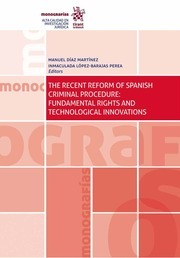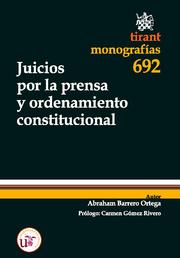The use of modern technology by the Police represents an essential working tool for obtaining digital evidence of crime and to counteract the sophisticated measures employed by organized criminal groups. The Spanish Constitutional Court, in its judgment 145/2014, highlighted the need for regulation to address intrusion in the privacy of investigated persons within the Spanish criminal procedure framework. The Spanish Organic Law 13/2015 of 5 October 5, amending the Criminal Procedure Law for the strengthening of procedural guarantees and regulation of technological research measures, is an attempt to alleviate this regulatory lacuna. This work considers, as one of its priority objectives, the requirements arising from the legality principle, in order to determine if the new regulations defi ne the methods and scope of exercise of power with suffi cient precision to adequately protect the individual. Specifi c attention is given, for example, to the new limits and scope of the interception of telephonic and electronic communications (paying special attention to cases of vital urgency), the recording of verbal communications, image capture, tracking and localization through the use of technical devices, the search of computer systems and the use of the drone as criminal investigation procedures. The work is completed with an analysis of some of the latest reforms in comparative law, such as the regulation in German criminal proceedings of a measure as invasive as the remote search of computer equipment. Finally, reference is made to cybercrimes and reforms of the Spanish Criminal Code. All these subjects are analysed from both a theoretical and practical perspective, addressing current issues which have been the subject of public debate in various forums with the involvement of prominent jurists and representatives of all the sectors involved.

 Continuar con Google
Continuar con Google Continuar con Facebook
Continuar con Facebook
